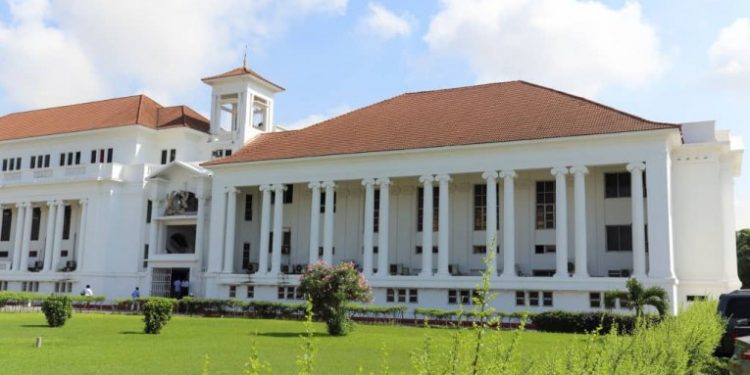The Supreme Court in a unanimous decision has dismissed the action brought by the Association of Finance Houses and held that the Corporate Governance Directive issued by the Bank of Ghana was lawful.
The Apex Court said directives of the Bank issued in accordance with sections 56 and 92(1) of Act 930 did not violate the 1992 Constitution of the Republic of Ghana.
It said the Bank of Ghana was independent and that its independence was guaranteed under the 1992 Constitution.
Therefore, making it subject to Parliamentary scrutiny and oversight would be upsetting the necessary independence of the Bank of Ghana.
The Bank of Ghana has been granted independence under section 3 of the Bank of Ghana Act, 2002, (Act 612) to maintain price stability and ensure sustainable economic growth;
The Court said requiring the Bank to present the requirements, regulations and directives it used to regulate and administer the financial sector of the country to Parliament would undermine the independence of the BoG and place unnecessary fetters on the efficiency with which it works in creating an enabling financial and economic environment;
It said requirements and directives issued by the Bank were administrative actions that it was empowered to craft and issue and that any contrary view would subject the administratively regulatory functions of the Bank to Parliament.
The Apex Court said that could cause a fossilized approach to what may only require an administrative and regulatory mechanism to correct within the financial sector;
It said the 1992 constitution did not intend the Bank of Ghana’s internal workings and regulatory responsibilities to be under the constant supervision of Parliament as this would introduce the danger of slowing and grinding the work done by the Bank to a gradual halt.
“Subjecting the Bank of Ghana to undue Parliamentary oversight will upset the necessary independence of the Bank and undermine the system of separation of powers and regulatory functions of the Bank of Ghana, as enshrined in the 1992 Constitution,” it said.
In December 2018, the Bank of Ghana issued a Corporate Governance Directive, pursuant to its powers under sections 56 and 92(1) of the Banks and Specialized Deposit-Taking Institutions Act, 2016, Act 930.
The Association of Finance Houses, in November 2020, brought an action in the Supreme Court challenging the Bank’s authority of issuing the directive, arguing that it ought to have been issued by Parliament as a Legislative Instrument in accordance with Article 11(7) of the 1992 Constitution of the Republic of Ghana.







